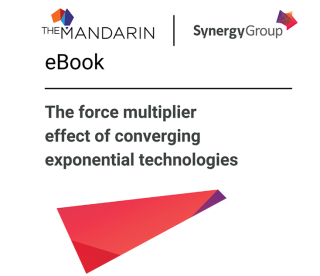
-
What We Do
-
How We Think
-
Our People
-
Our Offices
-
About Us
-
Get In Touch

Have you ever said to yourself - "Every year, we complete our procurement at the last minute. But it's going to be different this year..."?
Having been and worked with Government Procurement Officers (GPOs) who leave their procurements to the very last minute, I understand the stress that comes with the end-of-financial-year and as Christmas shutdown approaches. Having lived through 5+ complex procurements that all had to be completed in 2-month periods (and less), I’ve also made my fair share of EOFY and New Year’s resolutions that start with the words “… Never again…” But then “never happens” again. And again. And not completing procurements on time can lead to very serious financial and legal implications for GPOs and the organisations they represent. As a ‘survivor,’ I can offer some simple strategies that can potentially go a long way to making “never again” a reality.
Rule#1 – Don’t talk about (Procurement Club). And instead of talking about procurement plans, start your procurements ASAP.
After committing to Rule#1, GPOs will need to focus on three main challenges or issues – 1) the contracting parties’ procurement teams, 2) the way they do business, and 3) the internal and external approval processes that must be completed before finalising a procurement contract.
1. The Teams – It goes without saying that the availability (or unavailability) of skilled staff will impact the speed of procurement process. This issue is particularly acute when timeframes are short, or if the procurement requires significant stakeholder engagement. Similarly, procurement projects can grind to a halt because of staff movements within an agency or with suppliers’ teams. That can mean that many GPOs are scrambling to get themselves – or their counterparties, up to speed. However, there is a simple technique that can help GPOs and others get across a procurement quickly – and regardless of their number or complexity. The technique is to develop a high-level W5 Table, outlining the What, When, Who, Where, Why + How of:
What needs to be done,
When it is due,
Who is responsible for what,
Where documents are (at present) and where it will go next,
Why the procurement is not making any progress, and
How to deal with obstacles to move the procurement forward.
By taking responsibility for updating the W5 Table, GPOs can develop a ready-reckoner that can be shared with agency executives, suppliers, Ministerial advisors and others, along with providing a template for updates. GPOs should also ensure that they label their W5 Table as ‘strictly confidential’ and in line with agency security classification policies. GPOs should only distribute the W5 Table and related documents on a strict ‘need-to-know’ basis. They should also reinforce handling protocols on each email update, Teams or other virtual meetings and in face-to-face conversations.
In our experience, this simple (W5 Table) strategy leads to less update requests and more action items being completed in a timely manner. That’s enabled us to spend more time on other procurement activities and to gauge what are true priorities. It also ensures that we work in ways that are smarter and targeted, rather than scrambling for information.
2. Ways of Doing Business – When procurement contracts are complex, parties tend to take longer to settle agreed terms. That often leads to a rush to sign contracts at the last minute. However, simple procurement contracts can also take longer than anticipated. In our experience, this often results from the way that parties do business – and particularly, when their administrative procedures are irreconcilable. The simple tip is to find out early if these administrative issues are true ‘showstoppers.’ And if they are – GPOs should work on developing alternative protocols that will allow the parties to ‘get the deal over the line.’
That is the theory, but the practice is much more difficult to achieve. Regardless, the first step is to build a trusting, working relationship with the other party. Some simple ‘trust building’ strategies include:
Adopting 'active listening' techniques - And letting the other party speak first,
Appearing on screen during video calls - And maintaining eye contact, while ensuring that your facial expression is open and honest,
Being honest, fair and reasonable - That applies to all dealings,
Seeking to understand showstoppers - And why the other party has established these procedural requirements that might conflict with agency requirements,
Explaining procedural & probity requirements- And why your agency must impose certain procedural requirements (especially probity ones) and the importance of following your agency's procedural requirements,
Building a rapport and common ground - That could include indicating that your agency is trying to save the other party money - as a taxpayer. It also helps to be frank and honest about timelines and goals,
Emphasising the need to reconcile differences - That includes emphasising a desire to close the deal as soon as practical and to minimise costs, and
Picking up the phone - It's important to initiate conversations with the other party and to send a summary of discussions to the other party after the call.
Above all, GPOs need to remember that relationships take time and effort. In fact, it takes even more time to reconcile parties’ differences, especially when those differences are part of embedded day-to-day administrative practices. So rushing the other party is likely to be counter-productive.
3. Approval Processes – Obtaining approval from relevant delegates for spending proposals and executing contracts is a legal requirement in Australia. The number of approvals required (whether internally, externally or both) will depend on the value of the procurement, risks and other requirements. More complex procurements will, inevitably, require increasingly more signoffs. When dealing with multiple procurements, it is also inevitable that deal signatories will be unavailable – or will have concerns about some aspect of the deal, as deadlines approach.
To solve those inevitable challenges, GPOs must be prepared. And that means having all relevant documentation and correspondence ‘signature ready’ well in advance. That allows for the possibility of changes to documentation, ensuring that delegates are available and that they have the capacity to consider the proposed contracts. Beyond those issues, GPOs should consider:
Creating a 'deal calendar' that tracks all important dates, along with 'drop dead' dates for completing key steps leading up to the execution of the final contract. The calendar should include all active procurements. That way, GPOs can see 'pinch points' and scheduling conflicts far-in-advance,
Streamlining base or standard-form documents, so that only minimal modifications are needed for substantially similar procurements,
Creating a request cover page or email template for routine approval requests. These templates or covering documents should be ready-to-go once the substantive documents are finalised for delegates' consideration or signature,
Informing delegates about expected timelines. An excellent practice is to book-in meeting times for delegates to consider the procurement documents,
Being clear about what the delegate must do, especially with complex procurements. With complex deals, the GPO should also book 'briefing time' to take the delegates through the documentation in detail (and well in advance of the final execution of the contract). This allows the GPOs to receive prompt feedback from the delegates, address their concerns early, update documents effectively and reduce the possibility of the documents ping-ponging between delegates and the other side,
Keeping stakeholders informed of next steps. That could include sharing (non-confidential) aspects of the W5 table, as outlined above, and
Checking in regularly with stakeholders. That helps to identify potential delays, whether resulting from staff unavailability or changes in organisational service requirements.
When “that time of year” arrives again – and it inevitably will, we hope you are better-equipped with a few strategies that can help turn ‘never again’ procurement processes into a well-oiled machine. If you need any procurement help or advice, please feel free to reach out to Synergy Law for a chat about how to streamline and make your procurements more efficient.



